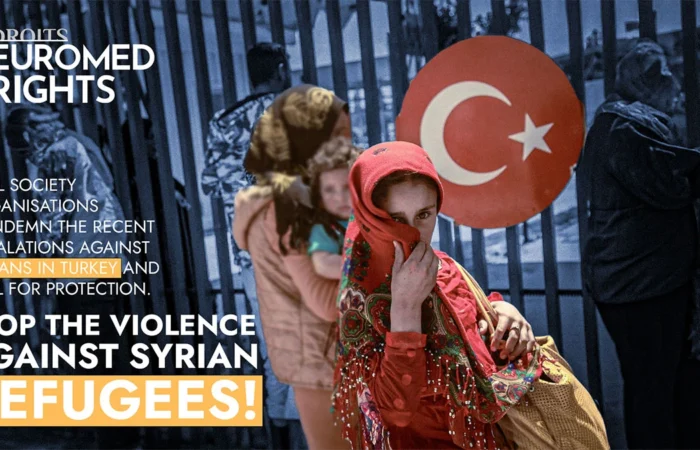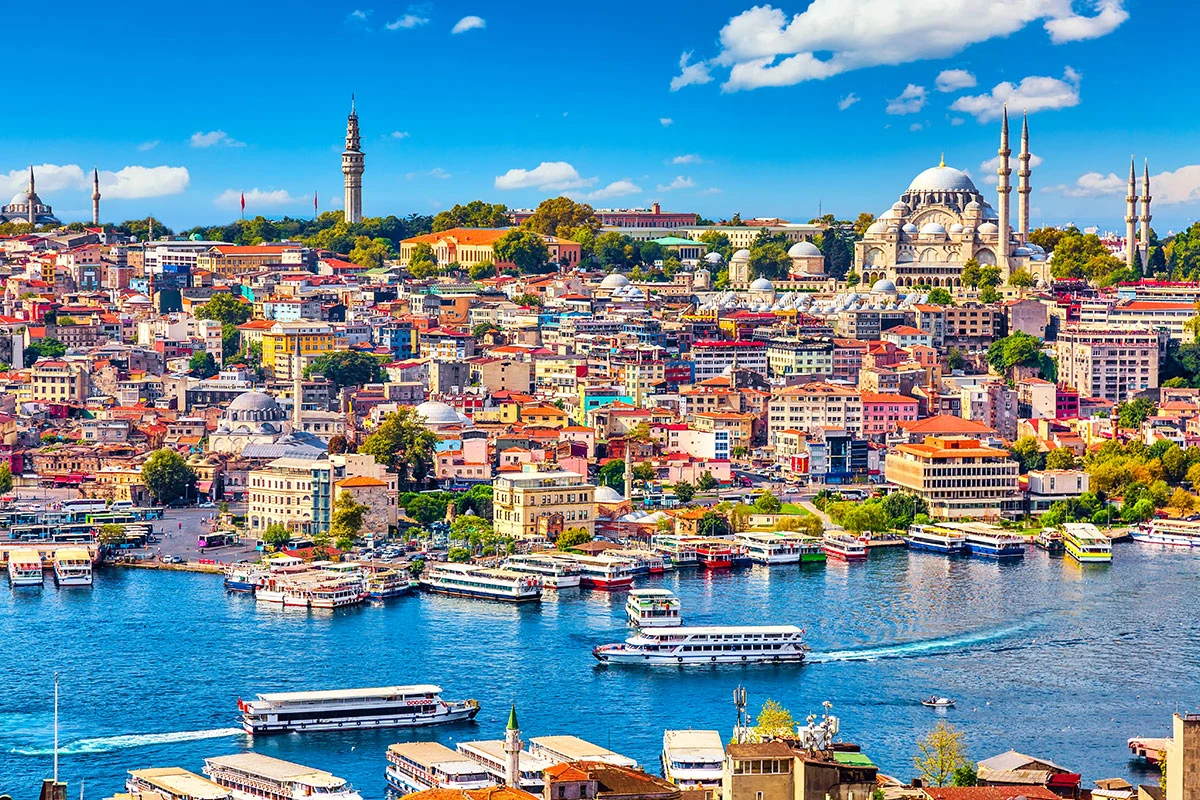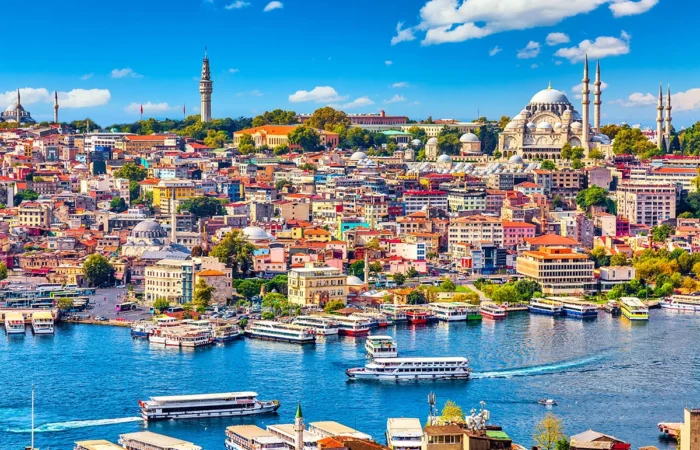
As the Council of Europe Human Rights Commissioner pointed out in March 2024, long-standing problems with the independence and impartiality of the Turkish judiciary pose an existential risk to the rule of law and respect for all human rights guaranteed under the European Convention on Human Rights.
Prisons in Türkiye (April 2024)
As the Council of Europe Human Rights Commissioner pointed out in March 2024, long-standing problems with the independence and impartiality of the Turkish judiciary pose an existential risk to the rule of law and respect for all human rights guaranteed under the European Convention on Human Rights. The Commissioner added also in their memorandum on Turkey that the judicial actions targeting journalists, civil society, human rights defenders, and lawyers remain the most worrying manifestation of continuous and concerted pressure exerted in a deliberate attempt to silence critical voices and to prevent them from reporting on ongoing human rights violations in Türkiye.
With this background, the conditions of prisons in Türkiye include serious human rights violations.
According to the official source of the general directorate of prisons and detention houses affiliated with the Turkish Ministry of Justice, there are a total of 403 penal institutions in Türkiye and the capacity of these institutions is 295.702 people.
Türkiye’s prison system has been a topic of international concern for many years due to reports of overcrowding, inadequate medical care, torture and ill-treatment, limitations and restrictions on basic human rights, and much more.
The problems faced by prisoners in Türkiye go far beyond the problems and incidents recorded in the official reports. Non-governmental organizations can’t access information and data that would reveal the actual situation in Turkish prisons because NGOs are not allowed to access such data, thus, reporting on them.
However, some NGOs prepare reports through difficult work. Some generally known human rights violations compiled from their reports are as follows;
Right to life
According to recorded reports, between 2000-2016, the number of detainees and convicts who lost their lives in prison was 3.432 people. Even though officially the death penalty has not been used since 1984 and it was abolished in 2004, more than 200 people die in prisons each year due to disease and bad conditions.
In 2022, at least 81 prisoners lost their lives in Turkish prisons. However, as in all rights violations in prisons, it should be noted that the actual figure is much higher due to the intense lack of information/data.

Right to health and sick prisoners
Access to healthcare and medical treatment within Turkish prisons is another significant concern. Reports indicate that many prisoners do not receive timely or adequate medical care, leading to exacerbated health conditions and preventable deaths. Essential medications are often in short supply, and medical facilities are understaffed and ill-equipped to handle the healthcare needs of the prison population. Furthermore, there have been allegations of authorities denying medical treatment to inmates as a form of punishment or control.
According to the findings of the Human Rights Association (IHD) Documentation Unit in Türkiye; as of November 30, 2023, there are a total of 1.517 sick prisoners in prisons, 651 of them being seriously ill. Again, according to this report, between 2020-2022, at least 151 prisoners died in prison.
Torture and ill-treatment
Despite legal provisions and international conventions prohibiting torture, cases of torture and ill-treatment, including physical violence and torture, continue to be reported in Türkiye, especially in the context of political detainees and prisoners. Human rights organizations have documented cases of beatings, solitary confinement, and other forms of abuse perpetrated by prison staff.
One of the most important violations of rights is strip search. Strip searches have become almost an ordinary practice in prison. It can also be said that these violations of rights within the scope of torture and ill-treatment are very common: Violation of the right to fresh air, oral cavity searches, military order, cameras recording living space, raid searches, and destruction of prisoners’ belongings, insults, threats, provocative acts, and much more.
Fair trial and limited access to legal representation
Numerous prisoners in Türkiye are not allowed to exercise their right to a fair trial. During their detention, many prisoners face significant barriers in accessing legal representation and defending their rights. Language barriers, lack of resources, and restricted communication channels hinder prisoners’ ability to seek legal counsel effectively. This limitation exacerbates the vulnerability of prisoners, particularly those who are marginalized or politically charged, and undermines the principles of due process and fair trial.
Violation of the prohibition of discrimination
The prohibition of discrimination and the principle of equality are guaranteed in the Constitution and many other international texts. However, in prisons, which are places of confinement, prisoners are subjected to many forms of discrimination, and their rights are ignored in violation of the principle of equality. Some of those are visitation rights, violation of the right to hope, violation of the right to communication, and violation of the right to information.
Overcrowding and infrastructure
Another of the most pressing challenges facing Turkish prisons is overcrowding. Although the capacity of prisons throughout Turkey is around 295.000, according to July 2023 data, there are 360.722 prisoners. 2.572 of these prisoners are children and 6.223 are over 65 years old. According to the 2022 annual report of the Council of Europe Annual Penal Statistics, Türkiye is the country with the largest prison population in Europe.
Overcrowding leads to limited and inadequate living conditions, lack of adequate food, increased tension among prisoners, and an increased risk of violence and disease transmission. Inadequate infrastructure compounds these problems; Many prisons lack basic amenities such as proper sanitation facilities and adequate ventilation.
Disciplinary action and the enforcement of sentences
According to the 2022 prisons report of the Human Rights Association, as a general attitude, prison administrations respond to all kinds of rights requests or reactions to violations by initiating disciplinary investigations. Also, this report indicates that prison staff batter or insult prisoners during social activities, transfers to and from the prisons, roll-calls, and searches. All those who do not comply with these arbitrary and non-procedural practices face investigations and are punished.
Disciplinary action taken as a result of these proceedings includes the prohibition of the right to communication and solitary confinement. Moreover, with these disciplinary practices, the prisoners’ rights to reduced sentences are also canceled.
**In addition to these serious violations of rights, fundamental rights such as the right to education, the right to petition, the right to information, and the right to be transferred to a prison close to the family are also violated, and more.
Resources
İHD 2022 Prisons Report – HRA (ihd.org.tr)
230626_Key-Findings-SPACE-I_Prisons-and-Prisoners-in-Europe-2022.pdf (unil.ch)
240111_SPACE-I_2022_FinalReport.pdf (unil.ch)
Türkiye – Country monitoring – Commissioner for Human Rights (coe.int)
Cezaevlerinde 16 yılda 3 bin 432 tutuklu ve hükümlü öldü – Son Dakika Türkiye Haberleri | Cumhuriyet
Latest Articles



